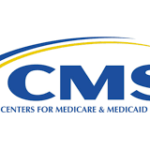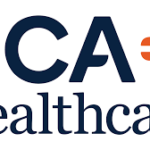.jpg)
Proposed Changes to Immigration "Public Charge" Determinations Could Impact Health of 2.1 Million Floridians
The U.S. Department of Homeland Security’s (DHS) 60-day comment period on the proposed immigration rule “Inadmissibility on Public Charge Grounds” to expand the range of health-related programs that can be designated “public charge” ends December 10, 2018. As the proposed policy change is inconsistent with the values of Health Foundation of South Florida, we have been working with community partners to ensure voices are heard in opposition to the proposed rule.
Public charge determinations are used by federal immigration authorities to decide whether to allow legal entry into the United States, in most cases applying to immigrants’ applications for lawful permanent residence and also to certain visa adjustments. Since the 1990s, the term “public charge” has been narrowly interpreted and only applies to immigrants who rely on the government as their main source of support. Current rules consider a limited group of benefits, specifically the acceptance of cash benefits like Social Security Supplemental Security Income (SSI) or Temporary Assistance for Needy Families (TANF), and institutionalization for long-term care paid for by Medicaid as triggers for public charge designations. The rule change proposed by the Department of Homeland Security would significantly expand the way the rule is applied and the number of benefits considered.
The proposed rule threatens the health of more than two million Floridians by impacting access to basic nutrition, medical, and housing benefits for themselves and their families. In the proposed rule change, parents and individuals who apply for Supplemental Nutrition Assistance Program (SNAP), Medicare Part D low-income subsidy, Section 8, or Medicaid may now fear losing the chance to remain in the United States. Yet, not applying deprives them of these life sustaining benefits.
Department of Homeland Security estimates 382,000 immigrants yearly will be directly impacted by the rule change. But it is the incidental impact of the rule that stands to harm the health of 2.1 million Floridians. Regardless of immigration status, fear and confusion will lead many to withdraw from benefits to which they have a legal right. According to Miriam Harmatz, Co-Executive Director of the Florida Health Justice Project, a grantee of Health Foundation of South Florida, “The chilling effect will result in Florida’s families and children being poorer and sicker.”
Florida Health Justice Project estimates the chilling effect in Florida will result in up to 150,000 US citizen children dropping Medicaid and CHIP, and up to 85,000 losing food assistance, despite remaining legally eligible. Half of those children live in Miami-Dade County, making South Florida families and the health care providers who treat them especially vulnerable to impacts of the policy change. The federal government has also acknowledged, in the preamble to the proposed rule, the policy change may result in increased poverty for families and children, and decreased revenues for health care providers, pharmacies, grocery retailers, and agriculture producers.
Health Foundation of South Florida is committed to working with partners to inform Floridians about what they can do to protect health-related benefits for their patients, their families and their neighbors. The Foundation urges organizations and individuals to take a stand for public health and against changes to the current public charge rule. Comments related to “Inadmissibility on Public Charge Grounds” can be submitted at regulations.gov. The deadline is December 10, but the impact will be everlasting.

























